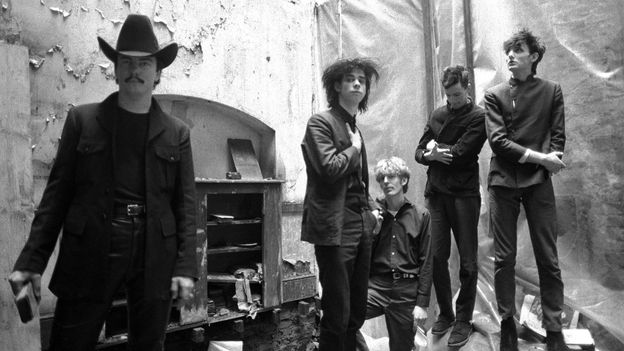The Australian band landed in London in 1980 with a thud of disappointment. “We hated the place,” the band’s singer, Nick Cave, says in an archive interview featured in the film. “It was repellent”, offers the band’s guitarist, Rowland S Howard, who died in 2009.
A moderately successful band back home, originally known as the Boys Next Door, they left to conquer England and renamed themselves The Birthday Party – although they arrived broke, with drug addictions, and in a country that was as indifferent to them as they were disdainful of it. Within just three years the band would implode. But they left behind a short yet incendiary legacy and a catalogue of music that four decades on from the post-punk boom, remains a potent collection. While mimicked, their sound has arguably never been matched for its intensity.
Arriving in the UK
This whirlwind period is depicted in Mutiny in Heaven, a film that features rare and unseen archive footage, original artwork, unreleased tracks, live recordings, and studio footage of the band at work. “I wanted to create a world and drop the audience into it,” the director Ian White tells BBC Culture. “To try and bottle that essence of the late 70s and early 80s.” There’s no gushing talking heads from fans; instead the band are placed front and centre. “When the material is that good, do you need someone else telling you it’s good?” asks White. “It seemed superfluous to have commentators talking about how powerful the material was when you can see it.”
The film traces their journey from Australia to England, where they ended up in a squalid bedsit they all shared. They had not found fame and fortune, but instead misery, destitution and malnutrition. Barry Adamson, who made his name with post-punkers Magazine in the late 70s and early 80s, but joined The Birthday Party for a few months on bass in 1982, tells BBC Culture: “I think they expected the streets to be paved with gold and with their names written everywhere but instead they landed in this pit of shit.”
